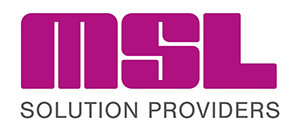The Biocidal Product Regulation (BPR) is a piece of EU legislation released in 2012 replacing the Biocidal Product Directive. The update aimed to improve the functioning of the internal market in biocidal products without reducing the protection provided by these products.
This legislation makes it illegal to sell a product which does not meet its requirements in the UK and European market.
The rules of BPR apply to the products in the form in which they are supplied to the user and not to the manufacturer or distributor: raw materials used in the manufacture of a biocidal product.
The BPR requires the manufacturer to prove that everything claimed about a product is accurate—its lifespan, it’s effectiveness in use and its contents. Manufacturers will also have to ensure a product is safe to use and to make all this information clear and easy to interpret for the end user on the label.
A product must make claims suitable to its purpose and area of use and have evidence in the form of testing to back up these claims.
This requires extensive research and development from the manufacturer as without reaching the minimum requirements for its intended purpose while remaining safe to use and stable a product could be removed from the market in both the UK and Europe once its deadline has passed.
BPR and your cleaning processes
The BPR is extremely expensive for manufactures costing upwards of £750,000 to bring a product family to market.
Not all manufacturers are taking their products through the BPR process nor will be consolidating their range to reduce the number of products they will be taking forward.
If a company does not submit its product for authorisation under the BPR it will be pulled from the market once its actives deadline has passed. For users, this may mean you will be left without your disinfectants at short notice if you do not check whether the products you are using will be available in the future.
Every year more product actives are going through this process and more companies are removing their products from the market to save on an expense they cannot afford, and they may not be making their customers aware of the imminent removal of a range until the last minute.
How can the BPR catch users out?
Sometimes it may not be clear if something you are using falls under the BPR and you may be caught out when it is no longer available. The following products are covered by the BPR, but this may not be clear:
- Treated articles e.g. biocidal surface coatings or impregnated metal surfaces.
- Any raw material you dilute on site to use as a disinfectant e.g. 99% IPA which you dilute before use.
- Water treatment products
- Hand rubs and washes
You must also be aware of what testing has been done on the products you use. There are specific test conditions which ensure a product can work in different scenarios and without the right claims you will not be able to use this product on your site, specific conditions are available for
- Pharmaceutical manufacturing
- Cosmetic manufacturing
- Food, beverages and feedstuffs
- Medical and veterinary facilities
How can MSL help with your progress through BPR?
MSL can act as your experts throughout BPR, we are a microbiology laboratory that offers a wide range of testing and regulatory services for organisations worldwide ensuring their products remain available to their markets in a cost-effective and timely manner.
We also provide support to organisations to ensure that they meet all BPR requirements. This includes support for IUCLID, SDS, REACH, dossier preparation. We also provide representative services.
We cover the entire range of biocidal product types, including disinfectants, preservatives, and pest control. Additionally, we provide organisations with consultation services and all the technical support that they may need during the process. Our services are tailored to our clients; needs and unique requirements.
Contact MSL today for comprehensive testing and regulatory services or just for guidance on what you may have missed, you can reach us by phone at 01706 282960 or by email peter.thistlethwaite@msl.io
References for further research on this topic:

